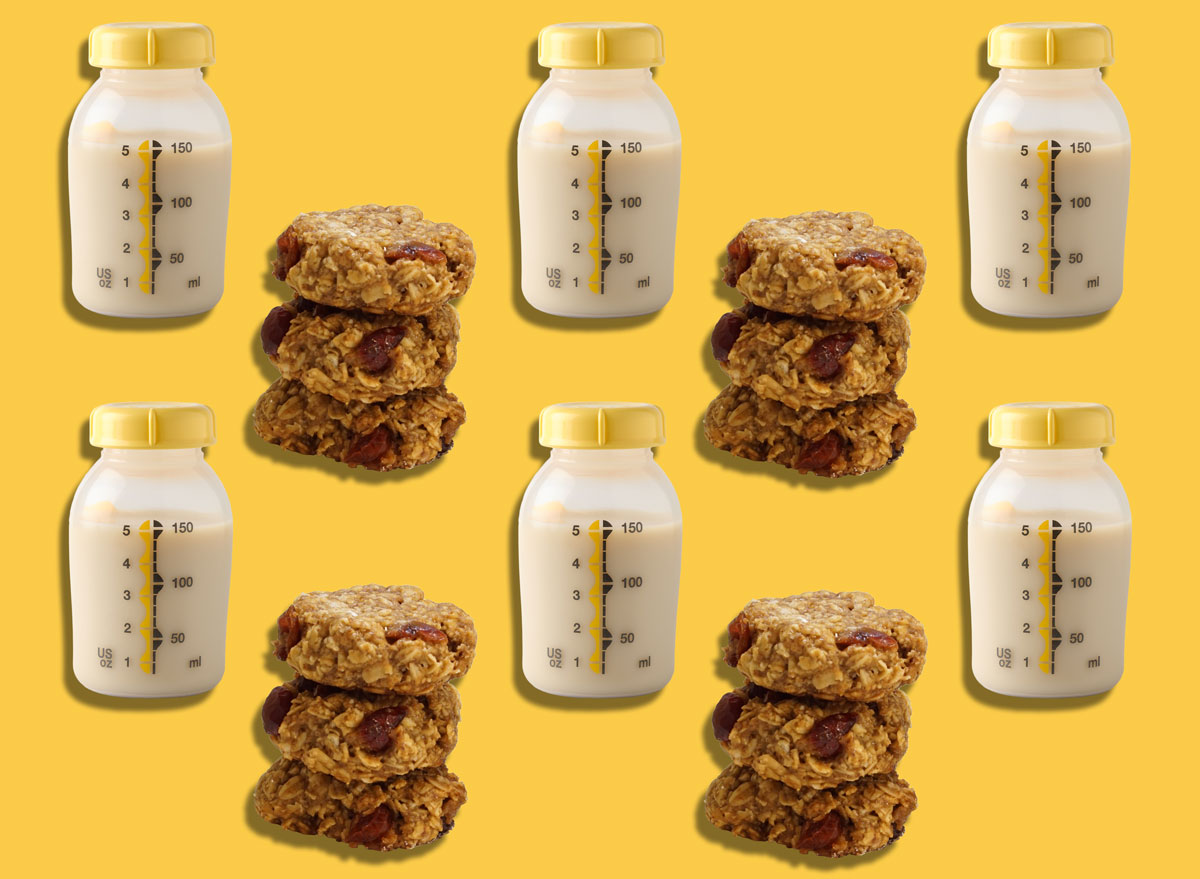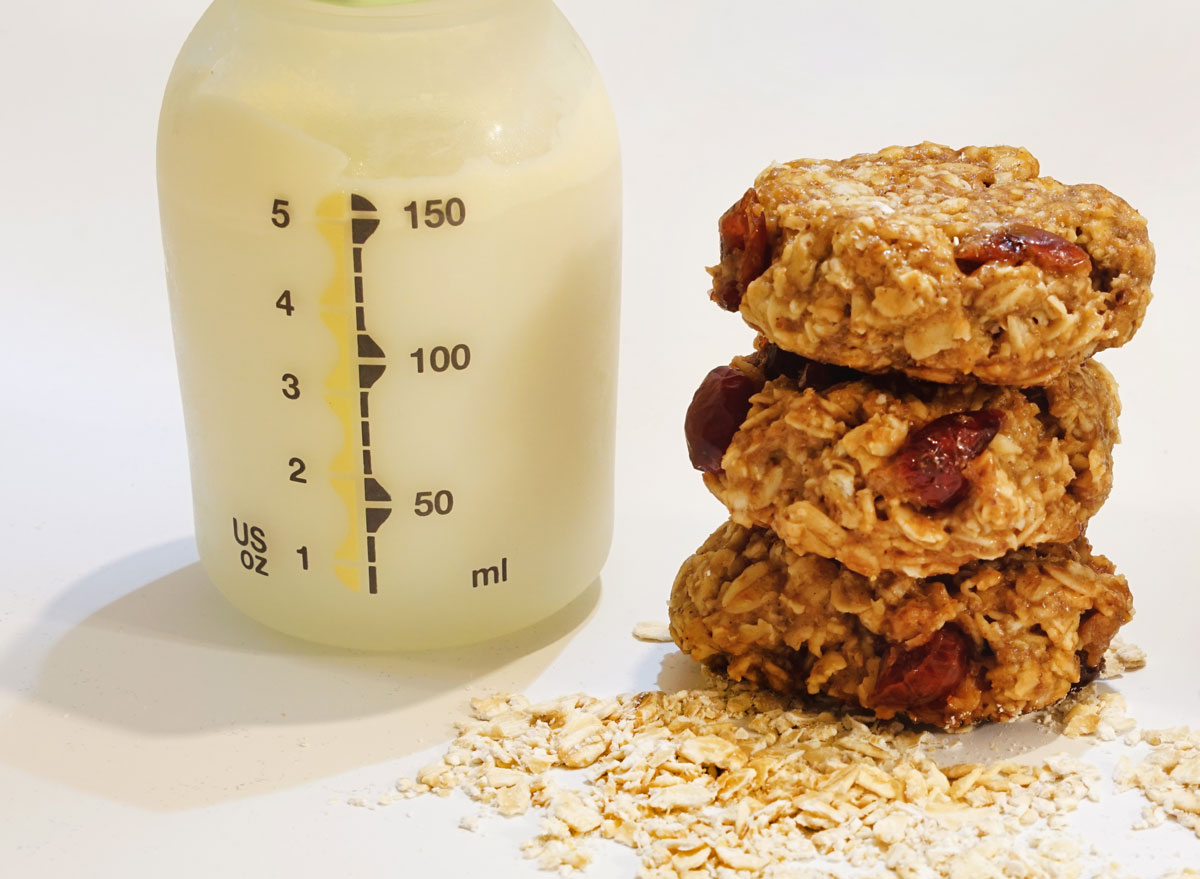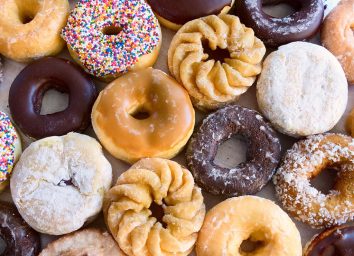Lactation Cookies: Everything Nursing Moms Need to Know

If you’re a nursing mom, you’ve probably noticed a new product on the shelves called lactation cookies. They tout that they help women increase and maintain their breast milk production.
In the United States, 50% of women believe that they don’t produce enough milk. And according to the CDC, 60% of women do not breastfeed as long as they originally intended. With these stats, it’s no wonder that many nursing moms are considering adding lactation cookies to their breastfeeding plan.
But do lactation cookies actually work? We asked two registered dietitian nutritionists for the lowdown.
What are lactation cookies?
“Lactation cookies are baked with ingredients that purportedly aid nursing moms in milk production (volume of milk),” says Monica Auslander Moreno, MS, RDN, LD/N, registered dietitian nutritionist at Essence Nutrition in Miami.
Galactagogues—ingredients thought to stimulate milk supply—are the base for lactation cookies. Examples of galactagogue foods include:
- Oats
- Flaxseed
- Brewer’s yeast
- Wheat germ
- Fenugreek
“Galactagogues are substances that help increase mammalian milk production,” says Sandra Arevalo, RDN, spokesperson for the Academy of Nutrition and Dietetics. Although lactation cookies are based on the assumption that galactagogues work, the supporting evidence isn’t conclusive.
What does the science say?
Truthfully, there’s not much research out there, and the studies that exist aren’t conclusive.
A 2015 study found that galactagogues, especially fenugreek, were found to increase milk production. But a 2016 review of 6 studies on galactagogue use of milk production only found that 1 of the studies showed a significant difference in milk production compared to placebo.
“None of the studies that I know has found conclusive evidence that these foods/substances work as desired,” says Arevalo. “However, there are moms that attest that some of these substances have worked for them. I think there could be a placebo effect in there or other practices that are happening on the side that help to increase the milk production that we are not looking at.”
Low-Sugar Lactation Cookie Recipe

If you do want to try lactation cookies, keep an eye on sugar content.
“The issue with (lactation) cookies tends to be added sugar. Baking with banana, mango, very dark chocolate chips (92% cacao or more) and halving amounts of sugar called for in a recipe can help a little sugar go a long way,” says Auslander Moreno.
If you want to try making some at home to avoid excess sugar, she recommends this lactation cookie recipe:
Homemade Lactation Cookie Ingredients:
- 1.5 cups rolled oats
- 2.5 TBSP Brewer’s yeast
- 2 cup dark chocolate chips (92% cacao or higher)
- 0.5 cups dark coconut sugar
- 1 egg
- 1 tsp vanilla
- pinch kosher salt
- 1.5 TBSP ground flaxseed
- 1 TBSP wheat germ
- 1/4 tsp baking soda
- Pinch cinnamon
- 1/2 cup unsweetened almond butter
Instructions:
- In 2 large bowls, whisk dry ingredients and wet ingredients separately.
- Fold wet into dry ingredients and mix with your hands (knead). You may need to add more oats to bulk up the batter.
- Bake at 350 degrees for 10-14 minutes until golden and toasty on top.
BONUS: You can freeze these and zap them in the microwave for later.
Should you give lactation cookies a try?
The jury is still out on whether lactation cookies will actually boost milk production. But if the cookies are packed with nutritious ingredients, there’s no harm in giving them a go.
“Lactation cookies, while perhaps not validated in scientific literature, contain ingredients nursing moms may lack that may optimize their nutrition and contribute integral vitamins and minerals that can help optimize milk supply and nutrition for nursing moms in general,” says Auslander Moreno.
“Many moms are so flushed for time that eating well can be a challenge. So, if we can package nutrition into easily accessible, yummy, bite-sized (and freezable/savable for later!) portions that also promote nutrient access (especially during feeding when metabolic needs increase), we’re all for it.”
Of course, if you do feel like you’re struggling with milk production, seeing a registered dietitian may help.
“If you feel your milk isn’t enough you should consult with a registered dietitian who is also a Certified Lactation Consultant,” says Arevalo. “He/she could answer all your questions and assess your diet to make sure you are eating all the nutrients you need.”








